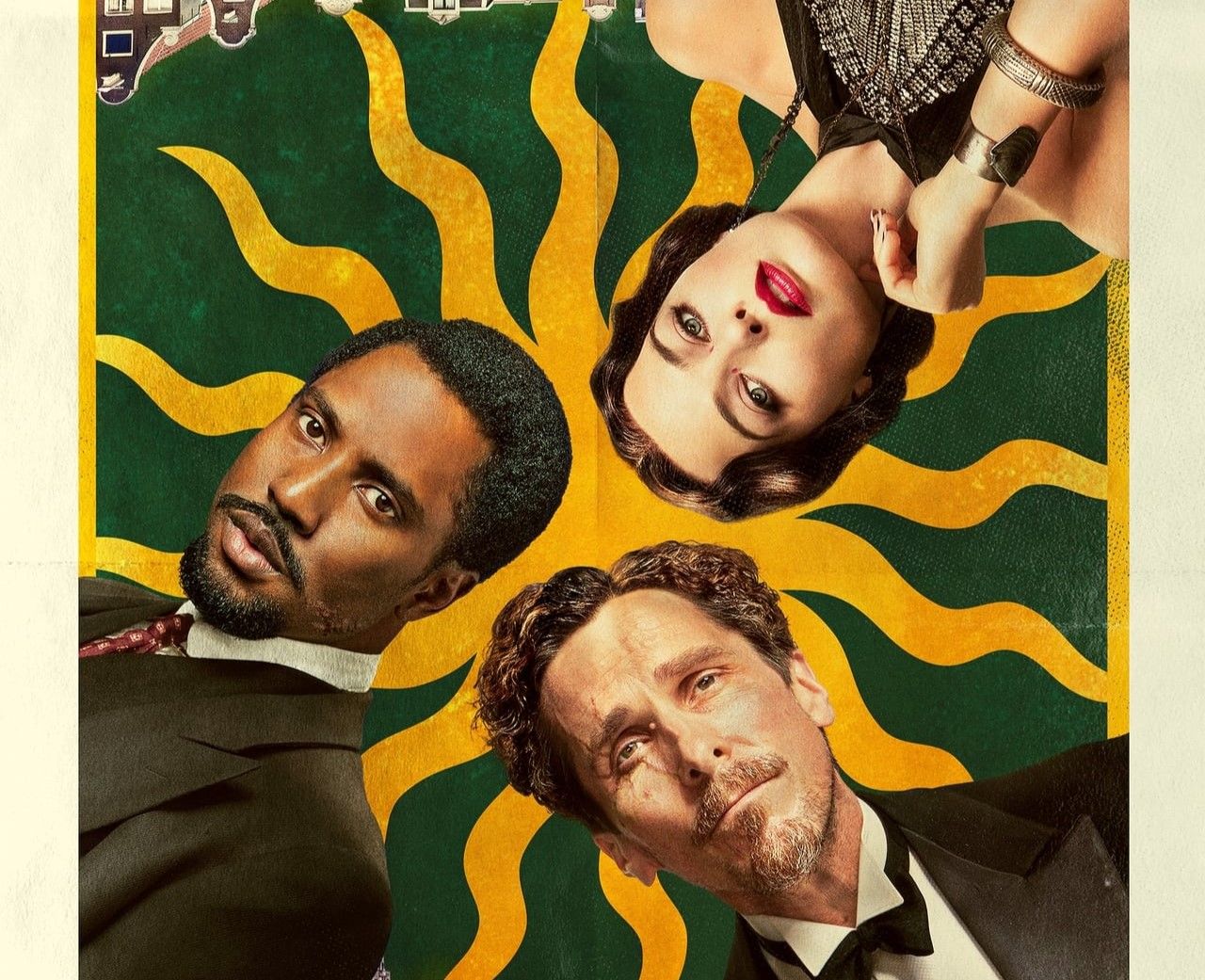By Claire Meakins, Film & Tv Critic and Subeditor
The latest in the recent surge of murder mystery films, Amsterdam (2022) looked set to be an immense success. To say that the cast is star-studded almost feels like an understatement, with the film essentially being a who’s who of the biggest names in contemporary cinema. Alongside that, the premise is quirky and intriguing enough to entice even the pickiest of cinemagoers. Amsterdam surely should have been too big to fail, but, yet, in many ways, it does.
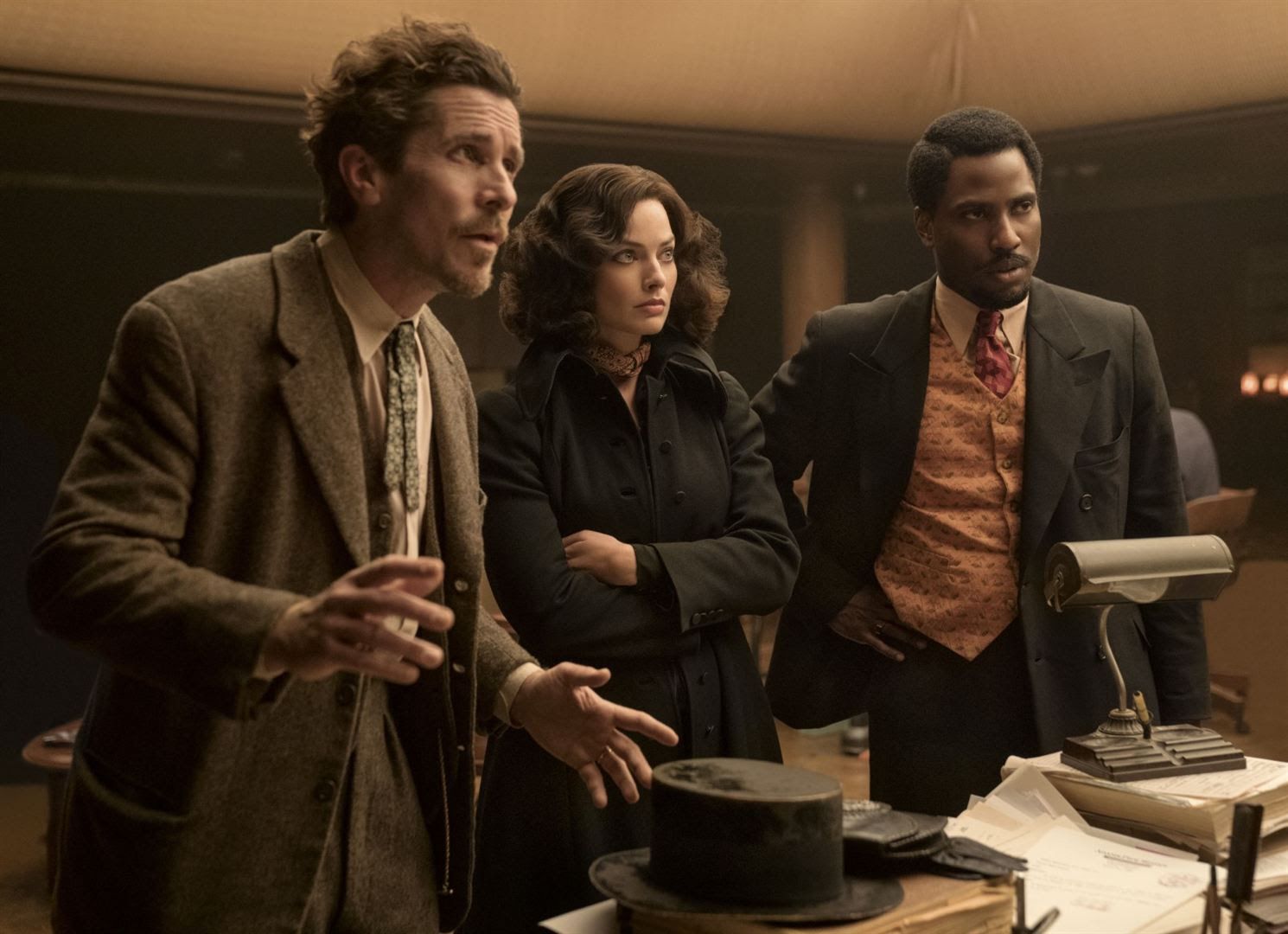
Set in the 1930s, the film follows three unlikely friends who become entangled in a high-profile murder case. In attempting to unravel this mystery, they discover a much darker conspiracy plot emerging amongst the American elite. Based on the real-life ‘Business Plot’ of 1933, Amsterdam takes a lax approach to historical accuracy, instead prioritising its characters and the outrageousness of the plot.
This is not an issue in and of itself. Fictionalized retellings of history can allow for creative storytelling and a great sense of fun, while still retaining a cohesive plot by using historical events as touchstones.
Amsterdam certainly has the first two, but it’s a bit of a hot mess when it comes to cohesion. The plot is dizzying, launching its audience through different times and countries while attempting to reconcile artistic pathos and campy humour.
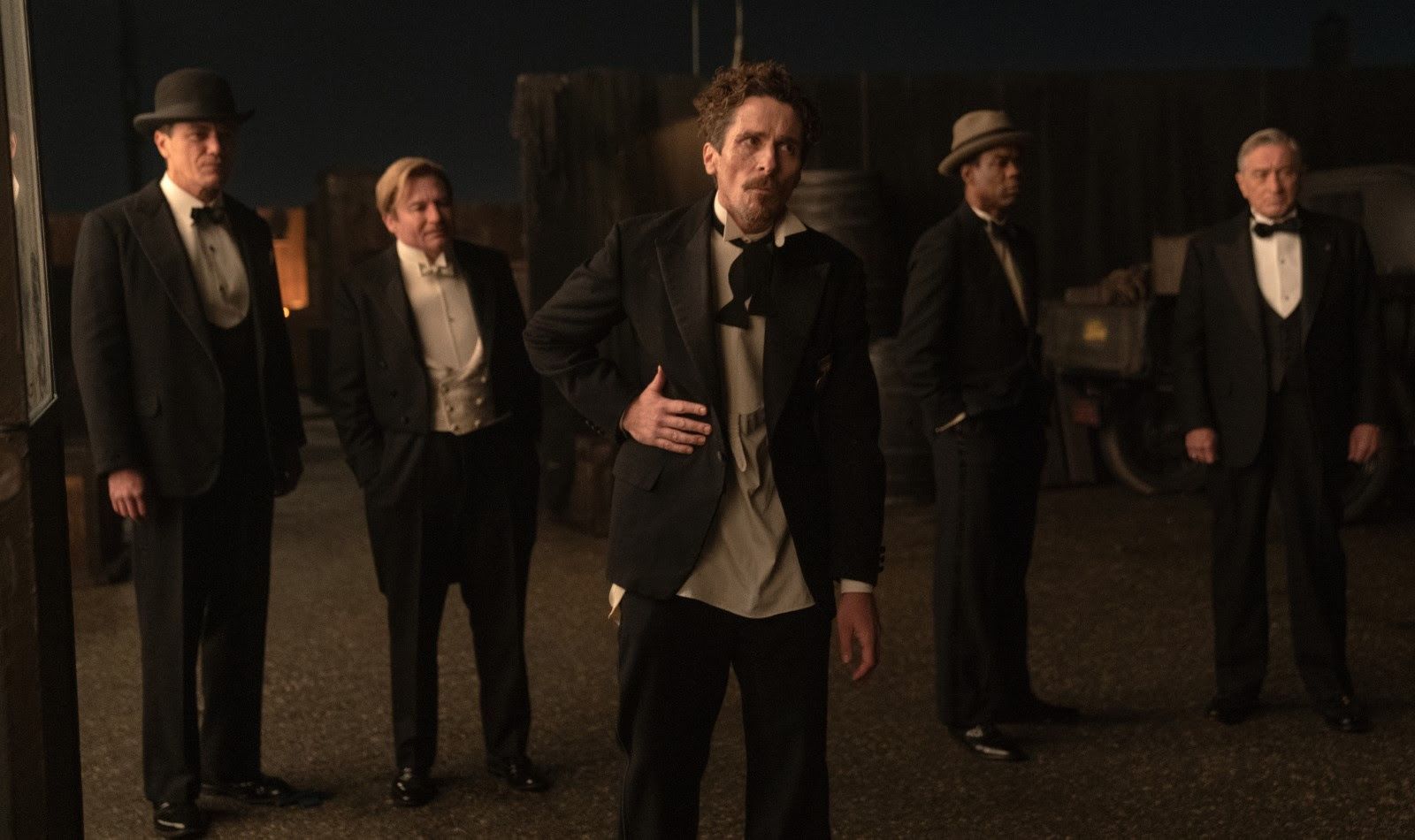
The film’s strength is in the latter. Christian Bale is, unsurprisingly, brilliant as the well-meaning, if clueless, Dr Burt Berendsen delivering every line with exuberance and adopting an unusual physicality with ease.
Likewise, Rami Malek and Anya Taylor-Joy have a delightfully witty dynamic as husband and wife, Tom and Libby Voze. Taylor-Joy, in particular, does a wonderful job of being both incredibly hateable and funny, often at the same time.
Amsterdam’s acting talent is, unfortunately, let down by the script’s lacklustre attempts at profundity. Long speeches about the value of love and friendship drag the film out and dampen its sense of fun.
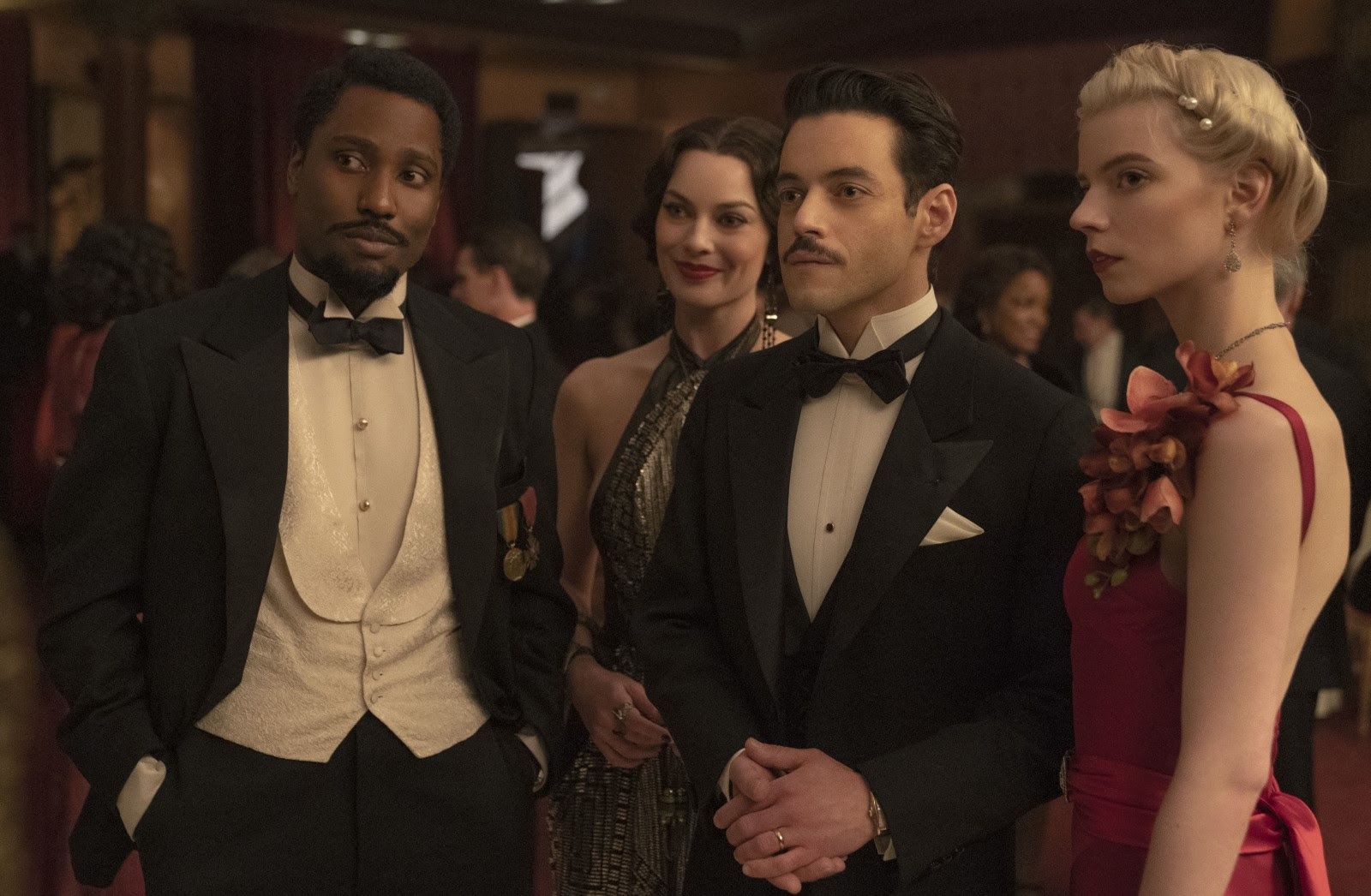
Playing forbidden lovers, John David Washington and Margot Robbie are often the unfortunate deliverers of these speeches, with off-putting close-ups only adding to their flatness.
While Robbie occasionally offers a sly look at the camera as if to acknowledge the script’s ridiculousness, Washington desperately tries to play these moments straight. This strange dynamic makes their relationship feel stilted and unloving despite it being one of the film’s main plot lines.
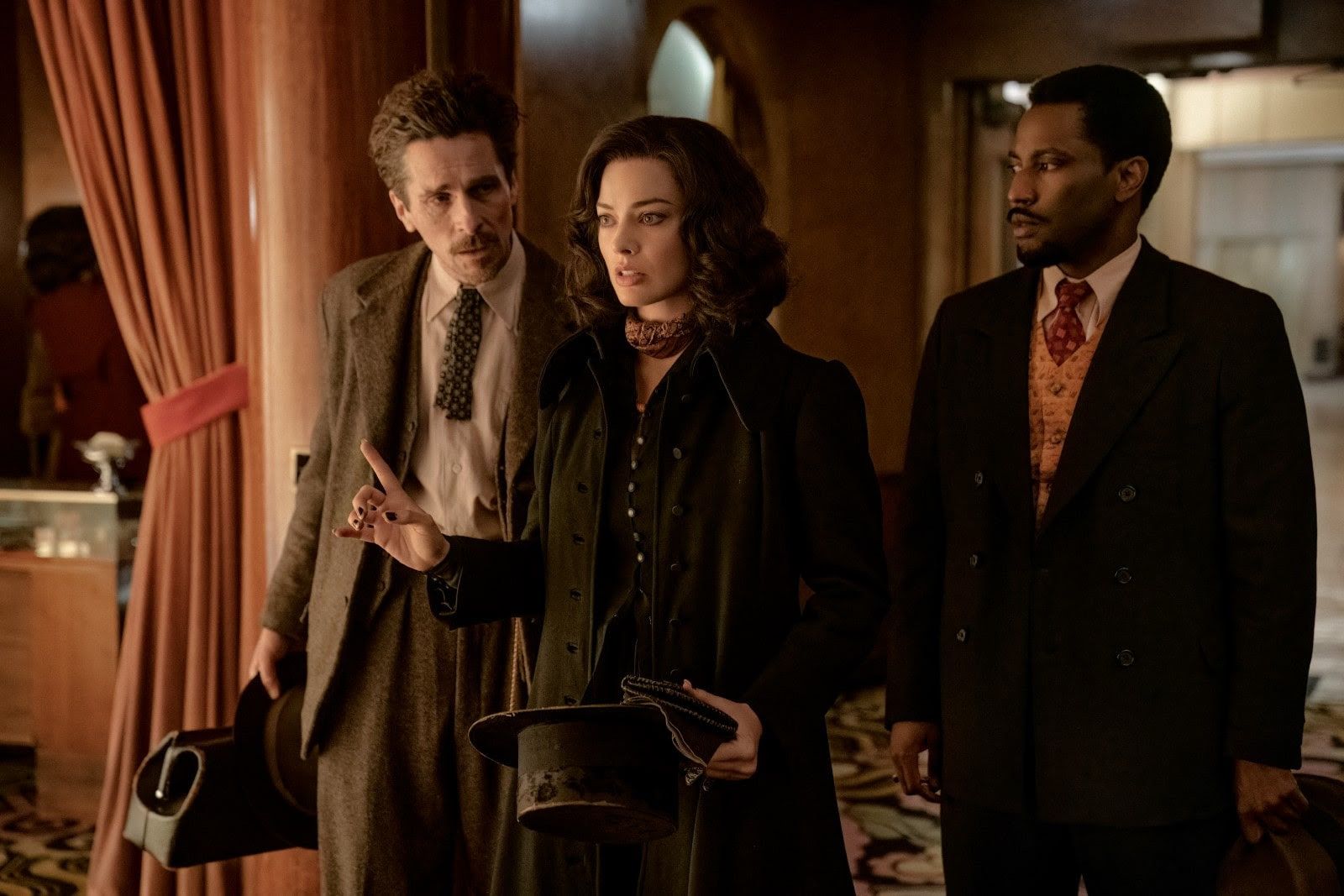
Much of the dialogue, in general, also feels deliberately drawn out and stiff. At points, this is obviously a stylistic choice to emphasise the film’s oddness, but, more often than not, it simply feels awkward. Though the film starts at a rapid pace, these moments do dramatically slow it down.
Before it has a chance to fully grind to a halt and accept itself as a slow-paced mystery, a spurt of energy throws the audience back into snappy editing and humour. This stop-start effect is initially appealing, adding to the film’s wackiness, but, as this unusual pacing continues, it becomes increasingly disjointed.
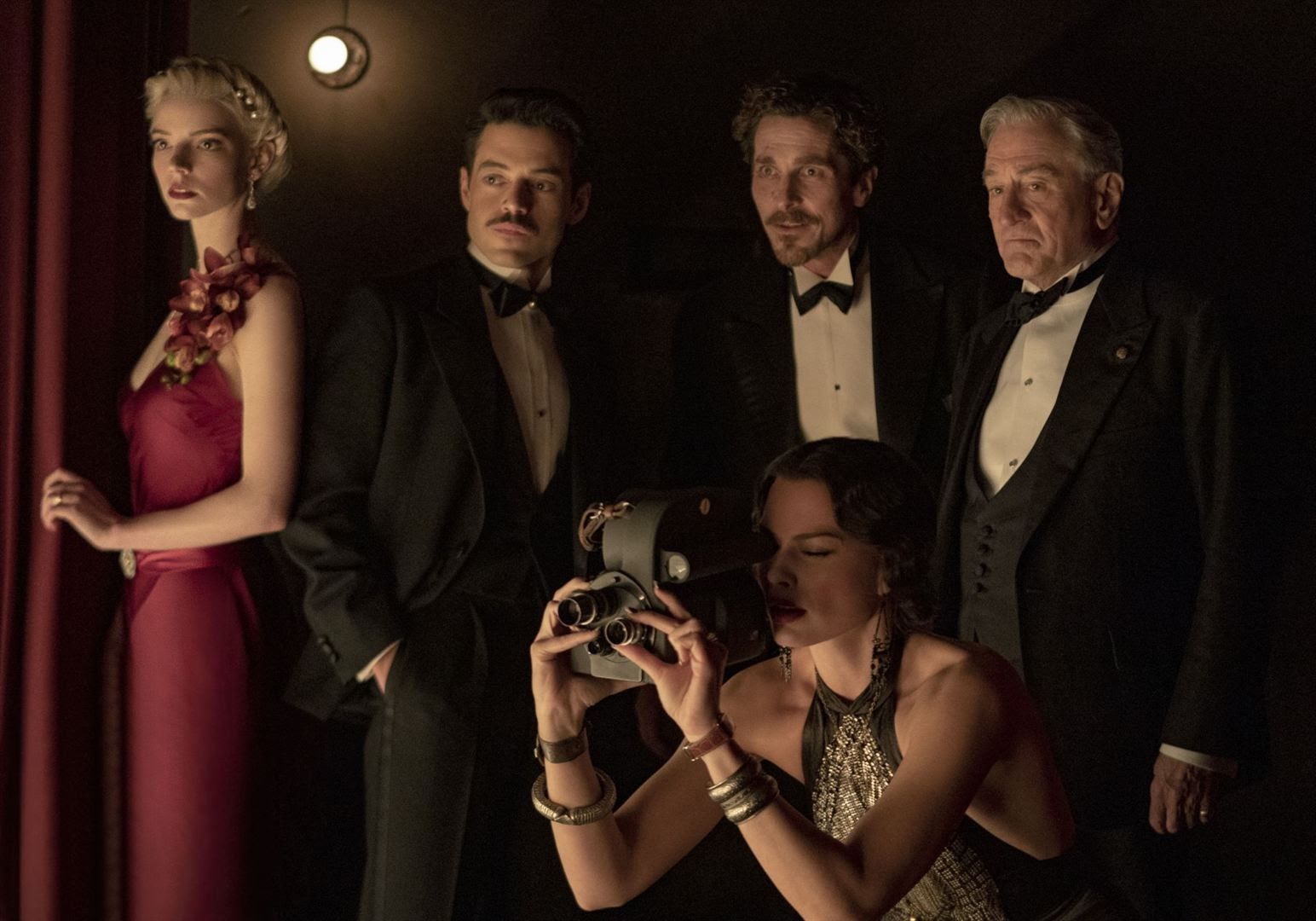
Touching upon issues of class, race, and capitalism, Amsterdam had huge potential to deliver an easily digestible chunk of social criticism. However, its ambition is where it falls down; in trying to do too many things at once, it does very few things well.
The combination of multiple cameos, genres and tones, as well as some truly bizarre cinematography, just creates chaos.
That being said, I can’t deny that I actually found the film quite entertaining! It often seems self-aware that it is a car crash and relishes in the mess that comes as a result. Perhaps this is down to the extraordinarily talented cast, who manage to prevent Amsterdam from being completely unwatchable and, in amongst the madness, make it fun and undeniably charming.
Featured Image: 20th Century Studios, courtesy of IMDB
Will you be tuning in to see Amsterdam?

